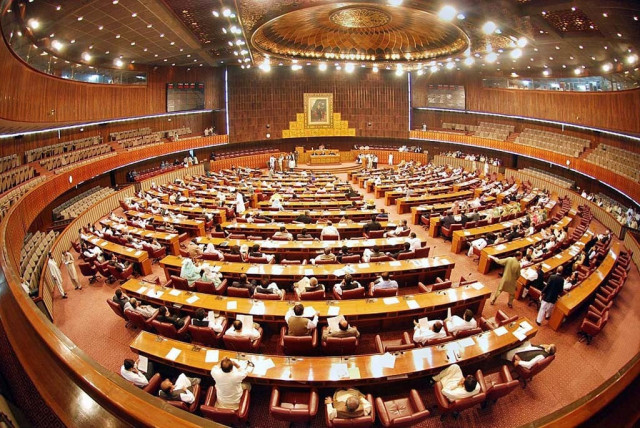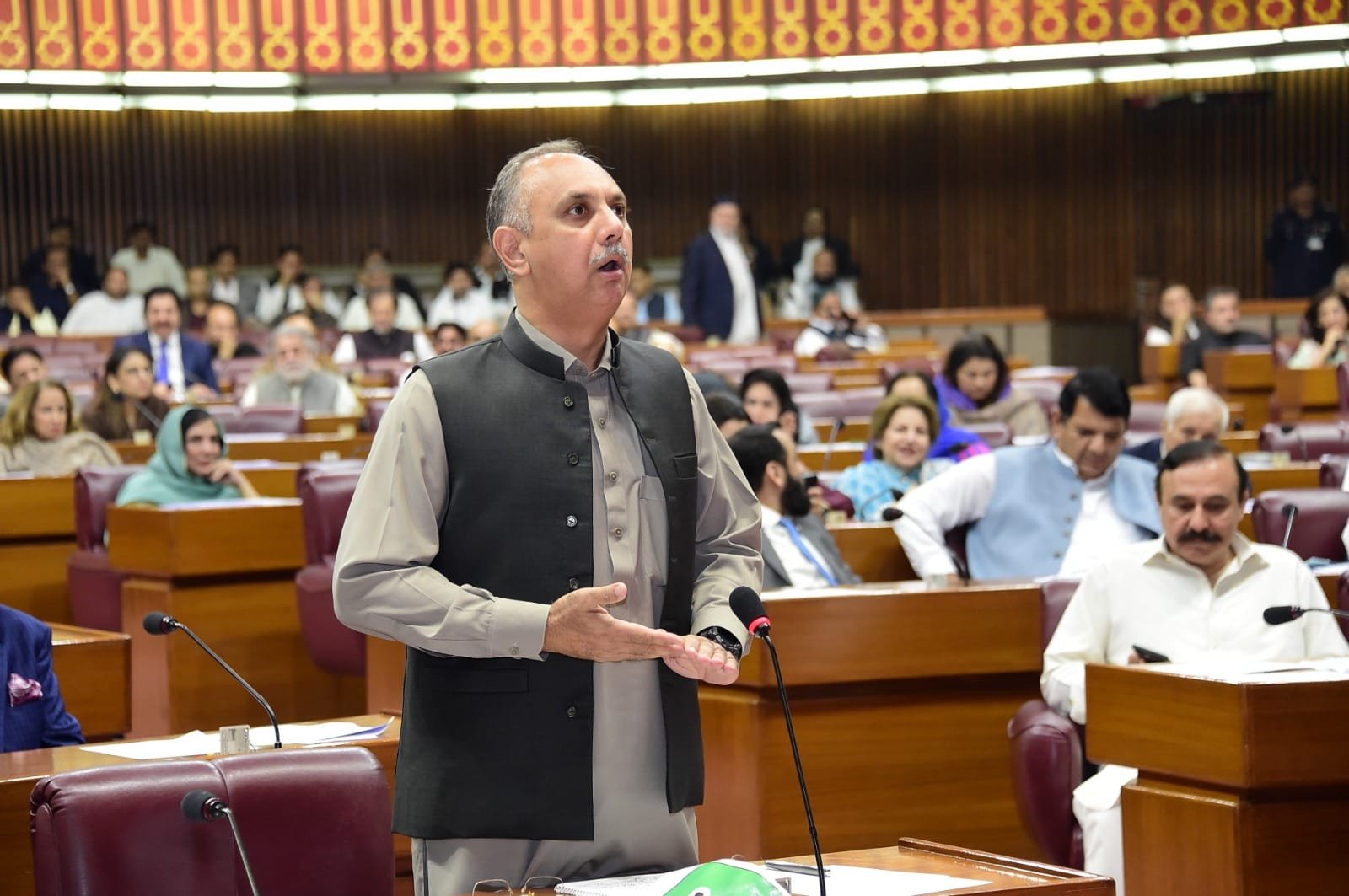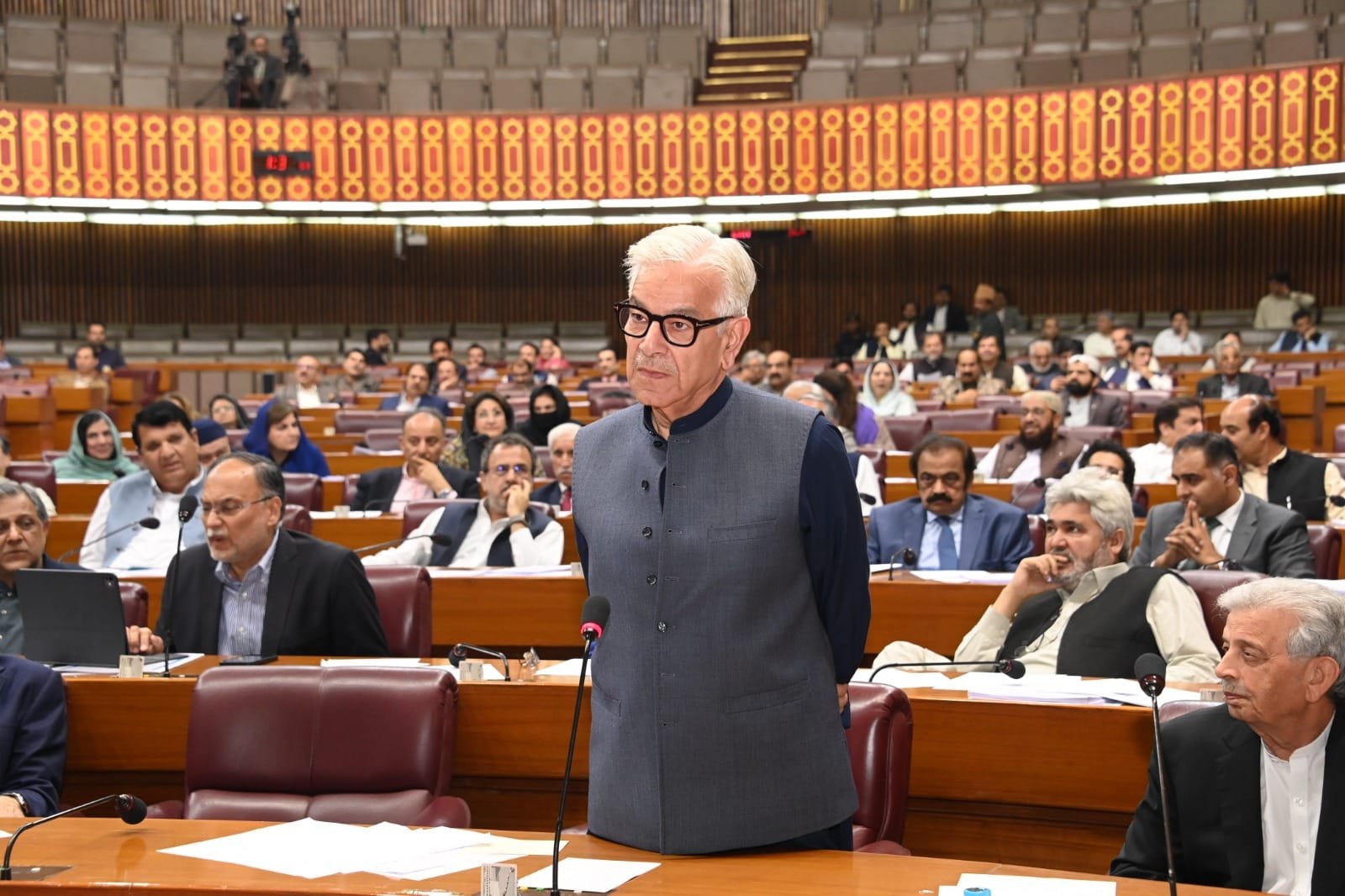National Assembly passes 26th Constitutional Amendment Bill
Opposition parties Pakistan Tehreek-e-Insaf, Sunni Ittehad Council staged a walk out as the voting process began

After the Senate passed the 26th Constitutional Amendment Bill 2024 with a two-thirds majority on Sunday evening, the National Assembly also passed the heavily contested bill with a two-thirds majority. The government needed to secure 224 votes to go over the line and it managed to secure 225 votes as some opposition members staged a walk out.
NA Speaker Ayaz Sadiq began the voting process after giving the floor to parliamentary leaders of various political parties. The bill was presented in the National Assembly by Law Minister Azam Nazeer Tarar during a session that commenced late Sunday night and extended into the early hours of Monday morning.
The bill has been in development for some time, with discussions facilitated by a special parliamentary committee formed last month. The committee included representatives from all political parties, including the PTI, and reviewed various proposals to finalise the bill's content.
After a brief recess, Pakistan People’s Party (PPP) Chairman Bilawal Bhutto-Zardari addressed the assembly, delivering a speech lasting over 50 minutes. He expressed his appreciation for Jamiat Ulema-e-Islam (F) Chief Maulana Fazlur Rehman, recognizing his pivotal role in facilitating the bill's passage.
“Maulana Fazlur Rehman did the most to ensure the success of this bill. His contribution has been historic, and I can proudly say he played the most significant part in it,” Bilawal stated. He stated that the amendments had been passed with 100 per cent political consensus.
Bilawal extended his gratitude to several political parties, including the Pakistan Muslim League-Nawaz (PML-N), Muttahida Qaumi Movement-Pakistan (MQM-P), Independent Parliamentary Group (IPP), JUI-F, Awami National Party (ANP), and others for their cooperation.
Notably, he also acknowledged the Pakistan Tehreek-e-Insaf (PTI), saying, “I also thank the PTI for playing a part in this historic achievement. This is a political success, and I wish you wouldn’t have portrayed your own victory as a loss.”

However, PTI’s Leader of the Opposition in the National Assembly, Omar Ayub Khan, took the opportunity to criticise the amendments, arguing that they failed to reflect the true will of the Pakistani people.
He directed a pointed remark at Law Minister Tarar and Bilawal, suggesting that those who had “gone missing” should also have been acknowledged during the expressions of thanks.
Ayub recounted allegations of mistreatment faced by PTI lawmakers, stating, “These were all tactics to pressure us. The mistreatment of Imran Khan in jail is also an example.”
The PTI alleged that seven of its lawmakers had been “abducted” and accused the government of attempting to enact the amendment under duress. Questioning the urgency of the amendment’s passage, Ayub asked, “What would have happened had it been passed on October 31?.”
He further expressed concern that the amendments aimed to undermine judicial independence, asserting, “We do not think this government is capable of bringing constitutional amendments. Therefore, we have instructed PTI members not to become part of this process.”
In response to the discussions, Defence Minister Khawaja Asif defended the amendment, stating that its passage through the Senate was essential to restore the respect and dignity of the parliament and the House. “There must be consistency in our political behaviour; otherwise, we will not gain the respect and dignity we seek,” he concluded.
Asif further emphasised that the constitutional amendments were not a novel initiative by the government but rather an extension of the Charter of Democracy, which had been unanimously endorsed by all political leaders, including Imran Khan.
The Charter of Democracy was signed on May 14, 2006, in London by major political parties as a response to the military rule of General Pervez Musharraf. Its purpose was to foster democratic principles and to safeguard against the misuse of power by unelected bodies, including the military and judiciary.

Furthermore, JUI-F chief praised all political parties, including the PTI, for their roles in facilitating the successful passage of the bill.
Rehman remarked, “The discussions we are having and the amendments we are considering stem from concerns regarding Supreme Court judges seeking extended terms. Upon learning of these developments, I raised the issue in the assembly and advocated for a constitutional amendment to prevent any conflict between the legislature and judiciary.”
He noted his commitment to the Charter of Democracy, which symbolises a collective agreement. “It called for the establishment of a constitutional court, and we have upheld our commitment to it, even as divisive resolutions have emerged in various forums.”
Rehman stated that the Constitution would remain a steadfast pillar, regardless of the ever-changing political environment. “These amendments reflect the commitments made between the nation and the provinces,” he stated.
He highlighted the sacredness of the Constitution, asserting that “the more revered it is, the more difficult it becomes to amend.” This, he explained, underscores the need to maintain constitutional integrity amidst political fluctuations.
Rehman further revealed that while the parties initially agreed on 65 clauses, extensive discussions led to the finalization of 22 clauses.
Addressing the PTI's concerns and Imran Khan’s imprisonment, he remarked, “The leader of the PTI is currently in jail under dire circumstances; such news is unacceptable.” He condemned the harsh treatment of any political leader, adding, “Had I anticipated the fate that awaited Imran Khan, I would have spoken out against it at the time.”
He also acknowledged attempts to create division within the opposition, asserting, “I have worked tirelessly to ensure unity among opposition parties and between the government and the opposition.”
Rehman reflected on the challenges faced, noting, “Despite numerous discussions with stakeholders, we could not agree on the formation of the courts. This is a democracy, not a dictatorship. We have accomplished the extraordinary despite significant difficulties.”
Moreover, Muttahida Qaumi Movement-Pakistan (MQM-P) leader Dr Farooq Sattar expressed that Pakistan's political, judicial, and democratic journeys have not always been characterised by noble intentions. “We all have erred, leading to political crises and conflicts between institutions,” he stated.
“While some of the core principles within the 26th Constitutional Amendment may make the MQM, its members, and its voters vulnerable, we choose to prioritise the greater good of the country,” Sattar continued. He asserted that such dedication enables the government to navigate the populace through confusion and uncertainty.
PTI Chairman Barrister Gohar Ali Khan took the floor next, voicing strong opposition to the recent constitutional amendments in alignment with his party's stance.
“They are not seeking a constitutional court; rather, they want a court that lacks independence,” he asserted. “This marks a dark day for the judiciary and the legal system.”
Khan explained that while the PTI had participated in the committee addressing parliamentary issues alongside the Maulana, he said, “I want to state clearly that we have not consented to a single word of this document, as we deem it illegitimate.”



















COMMENTS (1)
Comments are moderated and generally will be posted if they are on-topic and not abusive.
For more information, please see our Comments FAQ